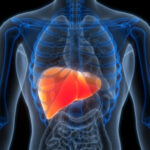-
Many People Don’t Get Colonoscopy After Receiving Abnormal Blood Tests
About half of people who receive abnormal results from colorectal cancer screening tests don’t follow up with a colonoscopy.
by Laura Gesualdi Gilmore
-
September 5: The Week in Cancer News
Rising prostate cancer rates reignite questions about screening guidelines, and a government report describing the health risks of alcohol may never be published.
by Eric Fitzsimmons
-
August 29: The Week in Cancer News
Some people’s cancer treatment may not align with their care goals, and a blood test may detect ovarian cancer at early stages.
by Darlene Dobkowski
-
August 22: The Week in Cancer News
A chemotherapy-releasing device helps destroy bladder cancer tumors, and long-distance running linked to increased risk for precancerous polyps.
by Thomas Celona
-
Can Steroids Impair Immunotherapy for Cancer?
A new study suggests steroids could blunt the effects of some immunotherapies, but researchers say they remain necessary for some patients.
by Kyle Bagenstose
-
August 15: The Week in Cancer News
Some women over 70 may not need chemotherapy for high-risk breast cancer, and an early trial finds a pancreatic cancer vaccine can trigger an immune response.
by Marci A. Landsmann
-
Treatment Combination Improves Survival in Platinum-resistant Ovarian Cancer
Preliminary results found that combining relacorilant with nab-paclitaxel improved outcomes for women with advanced ovarian cancer.
by Sandra Gordon
-
August 8: The Week in Cancer News
A targeted therapy offers new treatment for a deadly brain cancer that mainly affects children, and more people in their 40s are getting screened for colorectal cancer.
by Marci A. Landsmann
-
CAR T-cell Therapy Shows Response in Rare Brain Cancer
Potential new approach to treating diffuse intrinsic pontine glioma uses engineered immune cells infused directly to the brain.
by Taneia Surles
-
August 1: The Week in Cancer News
Most liver cancers can be prevented, and a common type of HPV is linked to skin cancer.
by Eric Fitzsimmons
Cancer Talk
Lessons From 20 Years Living With Cancer
Multiple myeloma survivor Jonathan Gluck reflects on uncertainty, and the scientific progress that has kept him living with cancer for more than two decades.
by Eric Fitzsimmons
The Enduring Importance of Cancer Disparities ResearchOpening session from AACR conference highlights how perseverance and adversity have informed cancer disparities research over the years.
by Eric Fitzsimmons
Most Cancer Survivors Don’t Meet Healthy Diet GoalsDespite research linking fruits and vegetables to cancer survival, many people do not change their eating habits after diagnosis.
by Darlene Dobkowski
Many People Don’t Get Colonoscopy After Receiving Abnormal Blood TestsAbout half of people who receive abnormal results from colorectal cancer screening tests don’t follow up with a colonoscopy.
by Laura Gesualdi Gilmore














